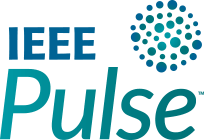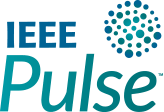So, why do you want to work for our organization? The answer to that question could cement your position in that company, or, maybe not, and so, like all the other answers you give during an interview, they need prior thought and, probably, some rehearsal. Interviews can be either nerve-wracking torture or a pleasant diversion, depending on whether you have had interviewing experience, or how much pressure you have put upon yourself to do well. I have only had to be interviewed to be selected for some position a couple of times, and I found those few times to be comfortable and friendly experiences. However, I have given interviews to many others, including prospective faculty members, Society professionals, support personnel, and graduate students. Here’s what I have found.
Most interview candidates meet or exceed the minimum qualifications needed to satisfy the requirements of the job. Most have some additional strengths that are particularly desirable for the position, even though these are not specifically listed on the position announcement. The differences among interviewees come in additional issues. What is nice to see in candidates is the ability to solve problems, whether they are associated with technical issues, interpersonal relations, or occupational stress and conflict, as appropriate for the position to be filled. Candidates who seem to exude an air of confidence without being audacious are more likely to be selected than those who are more timid. Candidate flexibility and adaptability are important because the needs of the position are likely to change over time and the abilities of the employee are likely to expand. This is a very important point: demonstrating one’s adaptability and ability to face and meet new employment challenges shows the interviewer that this candidate would be likely to fit with the organization over the long haul. Associated with this is the possession of useful skills and the desire to learn new ways to do things (see also a number of recruiter opinions along this line in [2]).
Ten Tips for Successful Interviewing
There is help for those who are facing interviews and need to have some hint about what might occur, what things are likely to be asked, and the best ways to approach the answers. Some of these tips are found on the Internet. From BioRadio come these tips, augmented by my experiences.
- Prepare a short resume. Include in your resume information that you think may be important to the interviewing organization. Put in details about your skills, your experiences, and projects you have worked on. Put in your interests and goals. But make sure that your resume is no more or less than a single side of a single sheet of paper. This makes it easy for the interviewer to see at a glance what makes you someone to consider for the position, without having to fumble through several pages of material. If the resume is shorter than one single page, then you haven’t included enough information about yourself.
- Prepare supplemental material. Bring with you examples of your previous work that could be of interest to the interviewer and his or her organization. Keep these to yourself unless it is appropriate during the discussion to show them. For example, if you have given an important oral presentation, either at a professional meeting, in class, or at your previous organization, then bring a paper copy of your slides. My students have sometimes brought copies of design reports from class assignments, and they have found that these reports have been instrumental in eliciting job offers. Be sure that these materials are relevant to the position for which you are applying. And—very important—be sure there are no typing or grammatical errors in anything you submit. The sensitive interviewer may use those to eliminate you from consideration.
- Do your homework. Find out as much as you can about the organization to which you are applying, and use that information when you answer the interviewer’s questions. This can impress upon the interviewer your diligence and preparedness.
- Know your technical skills and soft skills. Know what your strengths are, and communicate to the interviewer how they can be used to help the organization. Don’t forget your soft skills, such as being able to work in groups, being a leader, or ideation abilities. These can also be important to the organization. If you participate in volunteer work or are a member of different technical or nontechnical groups, mention these as well.
- Remember that you are an engineer. Interviews for bioengineering positions may focus on medical issues. Don’t forget your basic engineering principles or the engineering approach to problem solving. These are the skills that will lead to technical and nontechnical solutions the organization is interested in.
- Prepare for hypothetical questions. “What if?” questions will be asked. Use the knowledge that you have to venture an answer. If you don’t know the answer, say, “I don’t know exactly, but here is what I do know…,” and explain everything you know that relates to the answer. Nobody knows everything about everything, and this is not to be expected of the interviewee. But an interviewee who can deduce a close answer will impress the interviewer.
- Come prepared with questions. Ask about the job, the organization, expectations for the job, and so forth. At the very least, ask about the job search process, the next step in the process, and when you can expect to hear about the decision. Use this information to call back if they don’t call you.
- Don’t forget your manners. Body language is important to make a good impression [1]. Assume a relaxed but confident posture; give a firm handshake; sit upright (don’t slouch); look the interviewer straight in the eyes; talk in a clear, strong voice; and say “please,” “thank you,” and “you’re welcome” (not “no problem”). By all means, turn off your cell phone!
- Follow up after the interview. Wait a reasonable amount of time, perhaps a week, depending on when the interviewer said that you could expect to hear further from the organization, and either call or e-mail to find out results of the search process. If you call without an answer, then e-mail the interviewer. Remember to be courteous.
- Understand the process. The standard procedure when interviewing multiple candidates is to select the candidate of choice and offer that candidate the job. However, it is possible that the successful candidate does not respond favorably the offer and does not take the job. The interviewing organization may then select an alternate to fill the job. Because of this, most unsuccessful candidates, especially those on the second tier of desirable candidates, are not contacted with the news that they were not selected until the position has been filled. This may take a few weeks to a few months to complete. This gives you an opening to continue the interview process long after the formal interview has been completed. If there was a point in the formal interview that you feel needs further explanation, then contact the interviewer and provide that explanation, preferably by email or postal mail. The sooner after the interview you do this, the better. Remember that the interview is not over until you receive a communication from the organization that states some concluding decision.
Ten Questions to Expect
The following top ten questions usually asked at interviews come from Top 10 Interview Questions and Answsers on Youtube.
- Tell me about yourself. Mention your name, education, job experiences, and short family details. Talk briefly about your interests and your special qualifications that might set you apart from other job applicants. Refer to particular entries on your resume, and explain them very briefly.
- Why do you want to work at our organization? Use the information that you have found out about the organization to express what you like about the organization and how it relates to your long-term goals. If you can speculate about future directions you might see the organization moving toward and can express your interest in those directions, then bring those up as reasons to join the organization.
- What are your strengths? Mention things such as adaptability, strong work ethic, honesty, flexibility, optimism, positive attitude, ability to make decisions, persistence, and self-motivation, if applicable.
- What are your weaknesses? Mention no more than three or four of these. You might talk about being too straightforward, impatient, sensitive, talkative, or trusting; not being able to say “no”; making decisions too quickly; feeling nervous when speaking; or having a tendency to put off tasks when not interested in the problem. If you answer this thoughtfully, you can make your weaknesses seem like strengths.
- Why should I hire you? Share your knowledge, work experiences, skills related to the job, career goals, and educational experiences that could bring value to the organization.
- Tell me what you know about the organization. To answer this correctly, you need to know details about the organization, about its projects, the owners and partners, current issues at the organization, and its competitors. You might relate what you know about the organization to your own strengths.
- Why are you looking to change jobs? If this is your first job after school, then the answer is obvious. If you have been working at another organization, answer honestly. You could talk about the experiences gained at the previous position, how these experiences can be useful in the new position, but how the previous position limited your ability to reach your long-term goals.
- What are your salary requirements? Relate these to the organization’s norms. Give your previous salary, at least in general terms, and expect that this new position will pay more than that if the responsibilities of the new position are greater than the previous one. Remember that if you are successfully selected to fill the position, you are in the best position to negotiate a satisfactory salary immediately before you are hired. Once you have signed with the organization, then your salary is not likely to change more than the norm for that organization. Do not demand a certain salary at the interview; rather, wait until the organization has signaled that they want you, and only you, to join their operation.
- What are your career goals? Give short-term and long-term goals. Relate these to those of the organization and your profession. Most new hires can look forward to advancement over time, meaning more responsibilities and leadership. If you aspire to this, then mention it. However, don’t be too restrictive in your answer to this question.
- Finally, do you have any questions for me? Ask something. Possibly ask about salary structure, job timing, job location, training availability, professional activities supported, travel requirements or opportunities, or fringe benefits. An organization that supports additional education or allows travel to professional meetings will help you develop your professional abilities and reputation and likely improve your value to the organization over time.
A generation or more ago, employment with any organization was likely to be sustained for an entire career. That is not as likely these days, and changing jobs is often the means to advance in your career. Interviewing well is a necessary step to start or to advance your professional career. If you are successful, then your career path will be determined more by your desires than by the necessity to take just any job that may be available.
References
- A. Cuddy, Presence: Bringing Your Boldest Self to Your Biggest Challenges. New York: Little, Brown and Co., 2015.
- J. Calamia. (2011, Jan. 31). Dream jobs 2011: Help wanted? IEEE Spectr. [Online].


